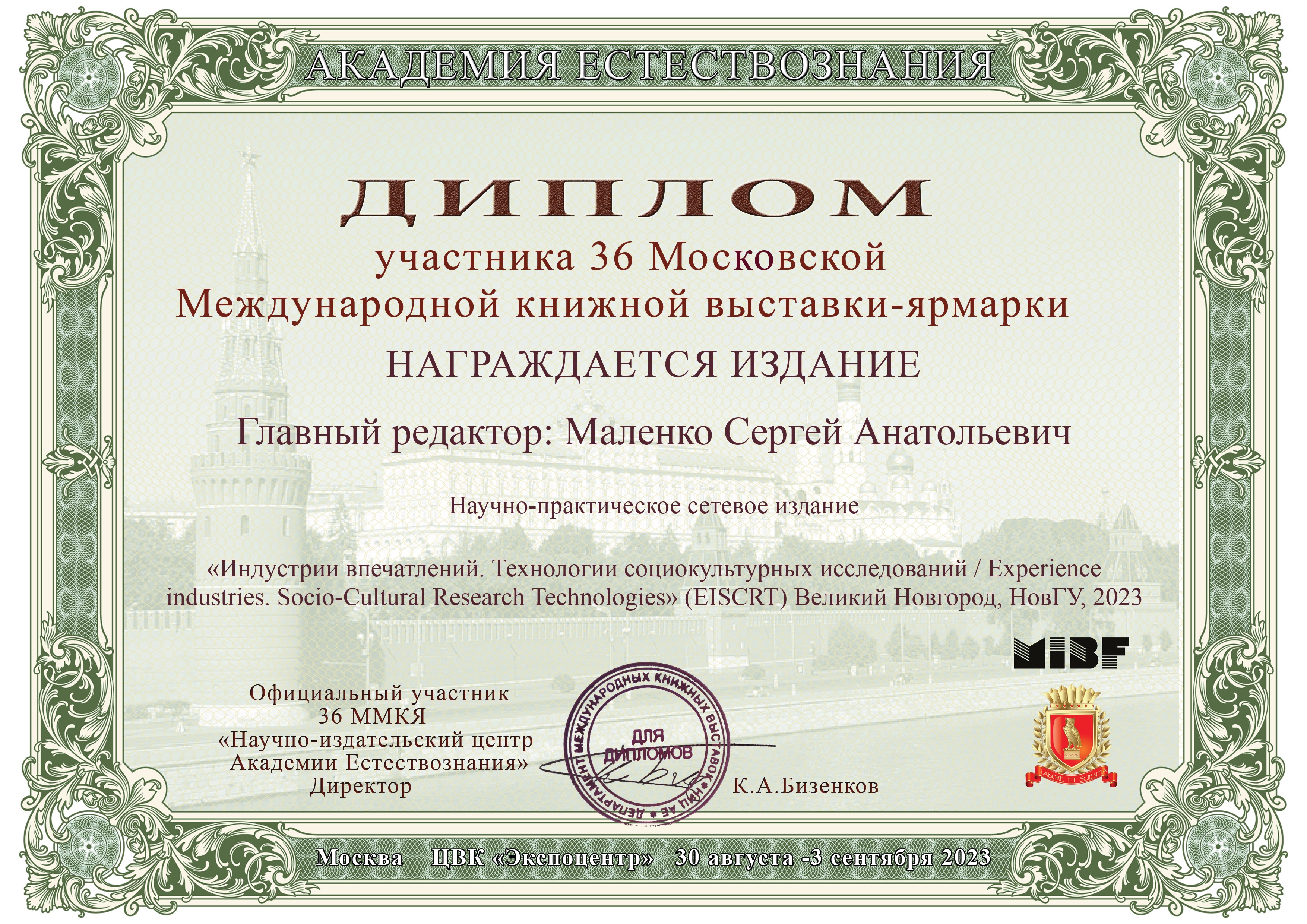HOLLYWOOD YOUTH DYSTOPIAS: SOCIOCULTURAL PROJECTIONS OF CONTEMPORARIES' FEARS ABOUT FUTURE WORLDS
DOI:
https://doi.org/10.34680/EISCRT-2023-1(2)-217-254Keywords:
dystopia, visualization, Hollywood, projection of fear, ideology, impression industry, cultural influence, propaganda, capitalismAbstract
The article deals with the phenomenon of anti-utopian works of the 21st century, associated with a qualitative expansion of the projections of the fear of contemporaries on the world of the future. The relevance of the topic is due to both an increase in the number of dystopian works, and an increase in mass consumer demand for visualized dystopias, an increase in the importance of dystopias in the ideological development of modern socio-cultural space. The dystopias filmed by Hollywood, which are gaining more and more consumer popularity, make it possible to analyze the projected individual and collective fears, identify the main signs of “unwanted” dystopian worlds for the authors, and also explore the ideas broadcast by their creators to the masses. The article discusses the most obvious fears projected by Hollywood, determines the causes of their occurrence and the degree of their unconsciousness, fixes the main socio-political goals and ideological scenarios for the introduction of identified fears into the spaces of other socio-cultural traditions. The characteristics of the reasons for the evolution and transformation of fears inherent in post-war generations are given, the basic reasons for their changes and the significance for dystopia as a genre are determined. An analysis is made of visualization techniques and mental and ideological impact on the consumer used in the creation of anti-utopian films. The article directly relies on the analysis of modern Hollywood youth dystopias: The Hunger Games, Divergent, The Maze Runner, which not only have traditional literary bases, but are also supplemented by large-scale and box office film versions.
For citation:
Syuzyumov, I. A. (2023). Hollywood youth dystopias: sociocultural projections of contemporaries' fear about future worlds. Experience industries. Socio-Cultural Research Technologies (EISCRT), 1 (2), 217-254. (In Russian). https://doi.org/10.34680/EISCRT-2023-1(2)-217-254








